NDR 2022: TODAY roundtable — what do Singapore youth think about the issues raised in PM Lee's speech?
On Sunday (Aug 21), TODAY organised an online roundtable with several young Singaporeans aged 35 and below to talk about what they gleaned from this year’s National Day Rally delivered by Prime Minister Lee Hsien Loong.
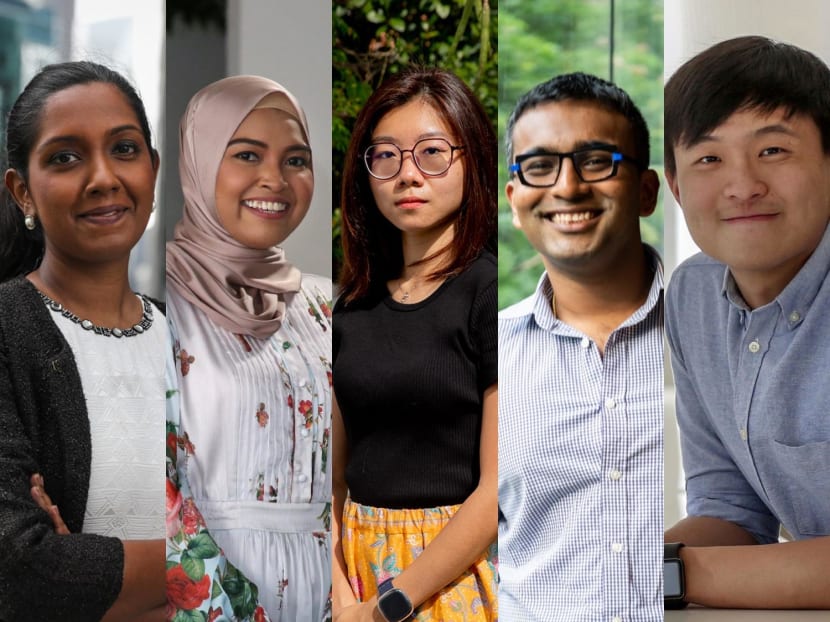
From left: Ms Jayasutha Sumuthiran, Ms Nabillah Jalal, Ms Esther David, Mr Yuvan Mohan and Mr Barry Yuen.
On Sunday (Aug 21), TODAY organised an online roundtable with several young Singaporeans aged 35 and below to talk about what they gleaned from this year’s National Day Rally delivered by Prime Minister Lee Hsien Loong.
The participants were Mr Barry Yuen, 30, co-owner of the Subway sandwich franchise in Singapore and the country marketing lead of food technology company Tiffinlabs; Mr Yuvan Mohan, 34, a public servant and National Youth Council member; Ms Esther David, 26, founder of tuition centre The Spark of Creation; Ms Jayasutha Samuthiran, 31, global brand manager at distillery Glenfiddich William Grant & Sons; Ms Nabillah Jalal, 30, founder of music school NJ Studio and council member on the People’s Association Youth Network.
Here are the excerpts from the roundtable:
TODAY: What are your thoughts on this year’s National Day Rally?
Jayasutha: One thing I think that was not touched upon enough… How are we ensuring that our green spaces are protected (with all the developments announced)?… As a country, we talk a lot about building dreams, but I think we can't discount the environmental impact of all that. How do we address it? That didn't come across at all in the speech, so I'm hoping more would be said.
Yuvan: I think this should be one of PM Lee’s last few rallies. If you see from the previous few rallies, he’s been trying to take many social issues head on and clear them within this term of government so that Mr Lawrence Wong, who is deputy prime minister right now and potentially prime minister-in-waiting, has a clear slate. What I hope to see more in future is the contrast of what DPM Lawrence Wong is going to do with his term, vis-a-vis what PM Lee has done.
Esther: I think the biggest announcement would be regarding 377A, though I think the most outstanding and impactful announcement in the short term is the mask-wearing rule.
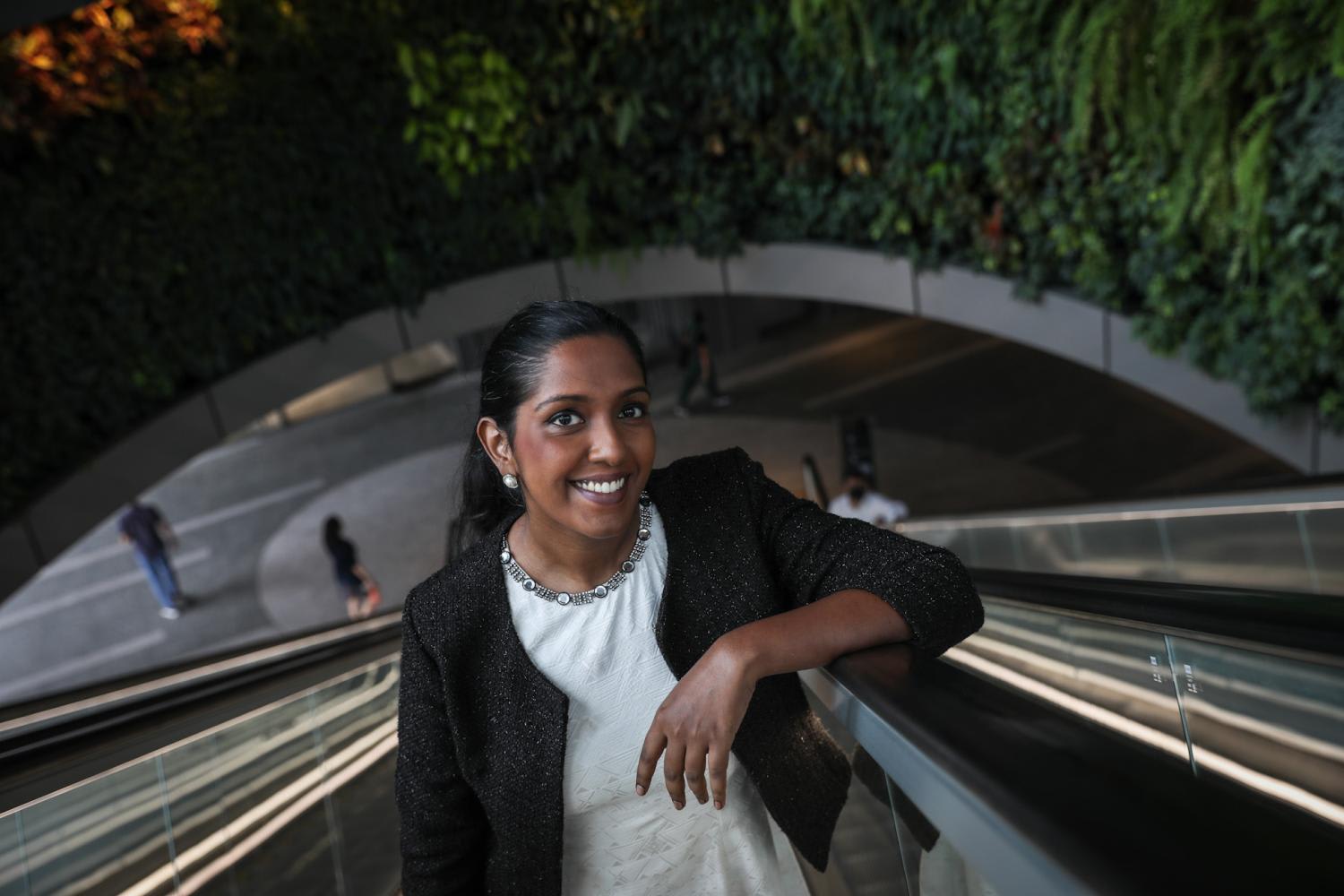
TODAY: The repeal of Section 377A — was this surprising to you? How do you expect the public, or those around you, to react in the coming days?
Barry: This is quite welcoming, in terms of at least showing how Singapore is moving forward as a society… I’m looking forward to that, while also keeping in mind some of the differences and nuances across the races and religions as well.
Yuvan: I think it will mean a lot for some people, but it may not mean a lot for a vast majority of people. When talking about religious groups, I think we can expect some pushback, or they will definitely voice their concerns. If you don't have a relative or friend who’s being affected by the law, you may not even feel it at all.
Nabillah: I've quite a few Muslim gay friends who texted our chat group and said, "Yay, I'm no longer a criminal". When I read that, of course, I feel very happy for them. But as a Muslim, where do I stand on the broader issue?… I think it'll be very interesting to see over the next few days how the different religious groups react to it as well.
Jayasutha: It’s massive news for those with friends and family members who are from the gay community. And that's exactly what Mr Lee said, right? They are not “others”, they are one of us.
I think as parents ourselves… knowing that our children would be able to choose (what they) become as they grow up... it was an important step in being inclusive.
Esther: I think that many people would not know how to feel, and there're two parts to this. One, it’s a religious issue, but for many who do not (have a religious viewpoint)… they don't really know how to feel because in Singapore, people are not used to speaking outwardly about such things… I feel that in all the groups that I belong, everybody is feeling some tension for many reasons. And nobody really knows how to say what they want to say.
Yuvan: (On protecting the definition of marriage in the Constitution), I'm not sure if it's going to cause pushback. But I think it's very explicit now how change is going to happen… (not through) the legal system… (but) by the parliamentary system, meaning maybe political parties may take this on board as an issue that they want to talk about in the future… though I don't think the existing political parties will be doing that.
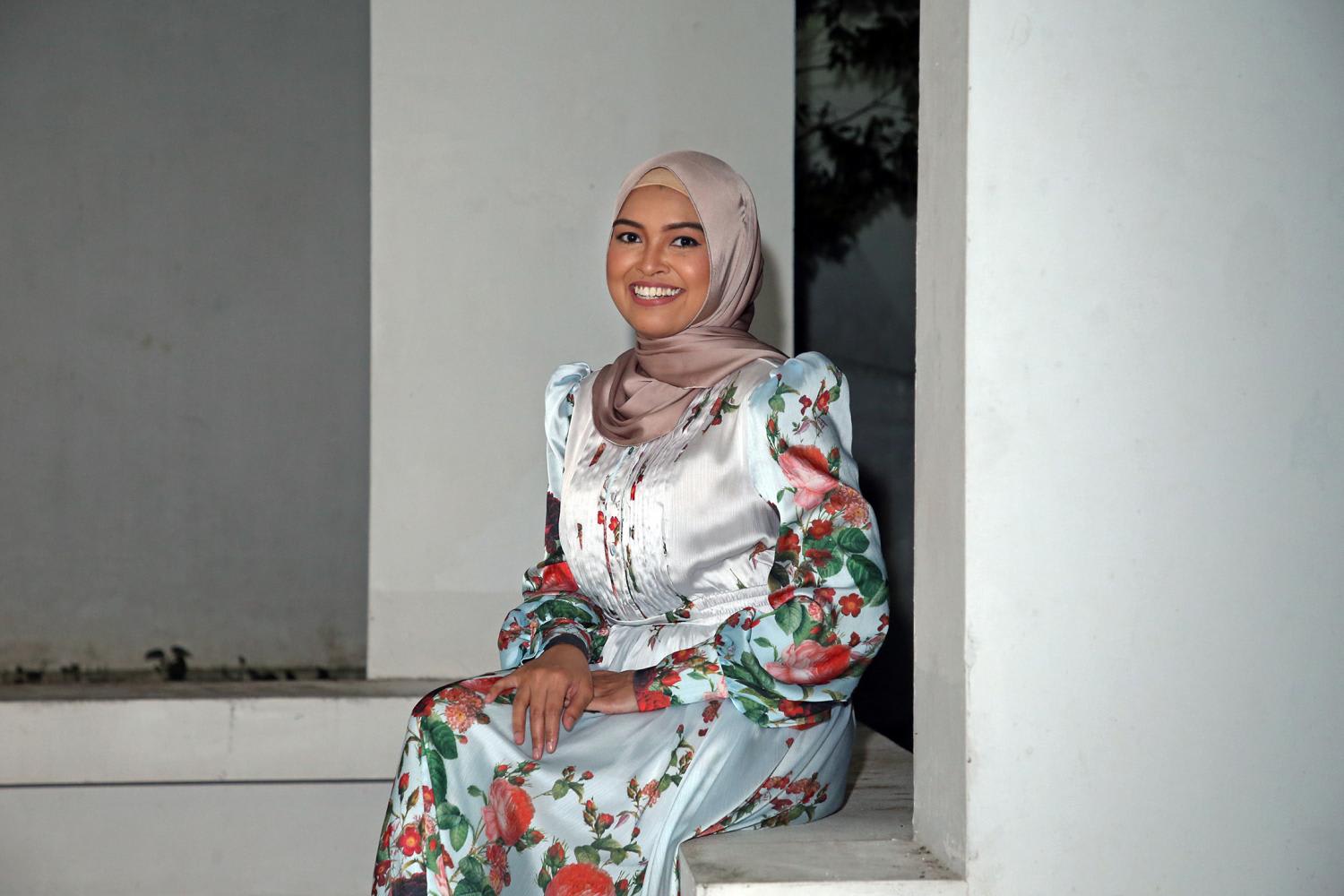
TODAY: How do you feel about the announcement that wearing masks will soon be optional, except on public transport and healthcare institutions?
Nabillah: I applaud this. I’m a teacher and I talk for eight hours every day. I can’t read the kids’ facial expressions. I’ve heard from some teachers and psychologist friends who have said that children (growing up during Covid-19) are not able to discern another person’s facial expression… It’s a very positive move and many of my friends in teaching really applaud this announcement… But I don’t know how parents will react to it if their kids are in a group setting.
Jayasutha: I have been waiting for this for a very, very long time. I can see that when I have my mask on, my daughter (who is seven months old) doesn’t understand me and it’s like that in indoor spaces when we have to wear our masks. So I definitely applaud that.
But what I’m really hoping is that people keep their hygiene standards up. I think kids and parents with young kids will appreciate it. Having a sick kid is no fun.
Barry: I work from home and I was living with my dad. I was being extra careful because my dad is elderly. For someone who has yet to contract Covid-19, I’ve been extremely careful. And even then, I am very open to having this “no mask indoors” policy.
What I notice in my workplace is that we are still careful when we come into close contact or if we are slightly unwell. We do take personal responsibility when going to work and for hygiene issues, so I am quite confident now that what Singapore is doing is at a very good pace.
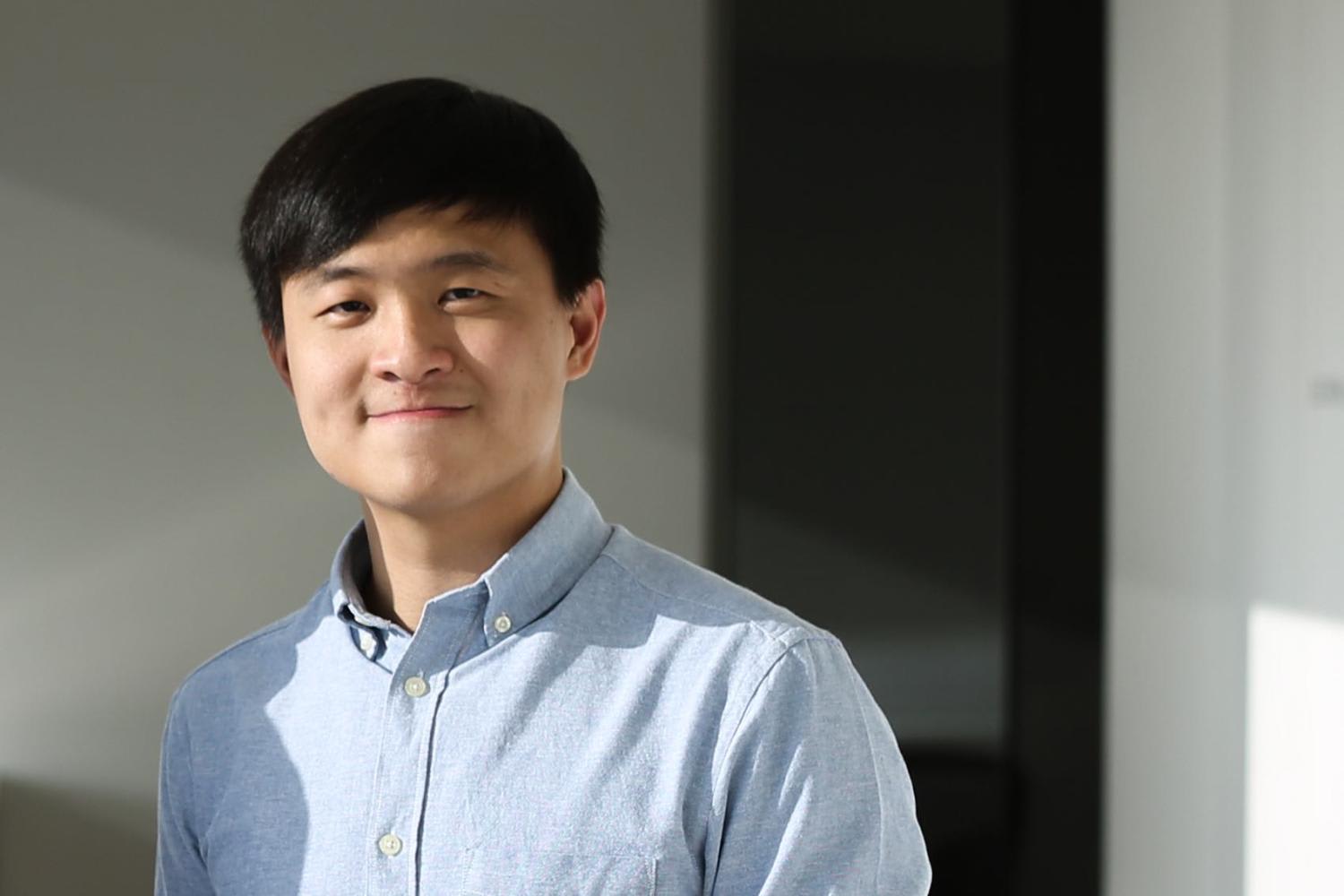
TODAY: Mr Lee explained why and how Singapore takes its position with regard to international conflict, be it Russia vs Ukraine or China vs the United States. Do you find his explanations assuring? Did you also worry when Mr Lee advised Singaporeans to “get real” and be psychologically prepared for a less peaceful region?
Jayasutha: I think this is the reality of being a small nation in this part of the world. Our geopolitical strategy has always been to try and be friends with everyone as much as possible and to speak up for the rights and sovereignty of smaller nations like ourselves and protect our own interests.
Everyone in this region will continue to toe the line in some way or another and push their own interests.
I feel like (the geopolitical tensions have) been ongoing for a while. We (as a country) are always, anyway, on the edge of our seat when it comes to speaking in the right political spaces for ourselves and pushing the right interests. So I think we’ve been playing the long game. As much as what’s happening is troubling, I, as a Singaporean, feel fairly secure.
Yes, we should be on our guard and I’m sure we will see that translated into the investments we make in defence and how foreign affairs are conducted. One of the things that Mr Lee said is keeping ourselves united as a nation and not letting divisive forces get in the way…That’s the most important part of what he talked about in terms of how it makes a difference for me as an ordinary citizen.
Singaporeans are well-travelled and we have colleagues and good friends in these places, so we cannot be apathetic. You have to form some opinion… That’s where divisions can happen when it riles up certain emotions and there are all sorts of contentious political issues in this region. Going back to what PM said, it’s about staying united and psychological defence at play, beyond military defence.
Nabillah: Honestly speaking, I have complete faith in the Government. I know that they make seemingly questionable choices sometimes, but when it comes to defence and the safety of Singaporeans, I know that it will try its best… But at the end of the day, like what Jayasutha said, it’s about being as united as we can and not let nitty-gritty details make us divisive.
Esther: Even though collectively, there’s a stance that the Government or country takes, most people are kind of pushed into taking a stance (on contentious global issues) either by their peers here or overseas. The thing is, there is no black and white, and that’s what’s so difficult. Every issue changes every minute.
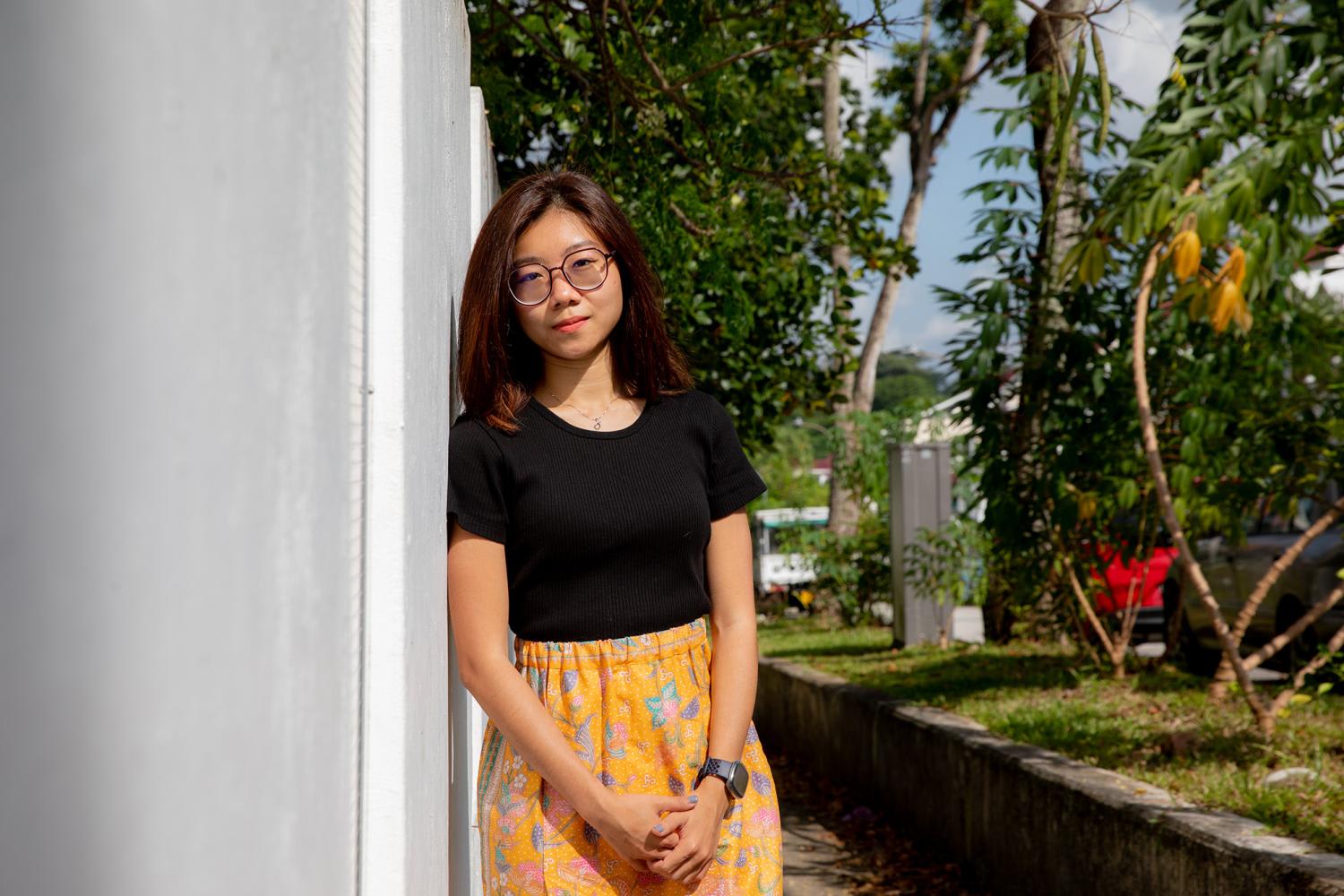
TODAY: PM Lee warned that the world is moving away from the "exceptional period" marked by low-priced exports and an openness to international trade, and said that upskilling is the way forward. How do you feel about this?
Nabillah: What I can do is just to make myself informed about investments and make sure that my money is getting the most bang for the buck. Whenever I can save, I should save. Whatever bad habits that I've picked up with regards to how I deal with money, I should relearn it just to make sure that I save up for the future generation as well.
But then, at the same time, I know that I come from a place of privilege. I'm also wondering — how about the people who live in rental housing blocks, for example? Do they know how to get their money's worth on things? Because the handouts that the Government is giving might not be enough in the long run. And their challenges are also very different from ours. So what else can we do to ease their burden?
Jayasutha: (Singapore is) absolutely not the cheapest place, but we are a great place for other things, from advanced manufacturing to any sort of value-added services — so I think it's promising. It's just whether we tap that opportunity… During the Covid-19 period especially, when we had a talent crunch because many people left and quotas were set, that did not bode well for the country… So you need to seriously upskill, (and) I think that is a caution we need to pay heed to, more than anything else.
Esther: The advice (on upskilling) is good, maybe for those who have the capability to upskill. But what about those people who don't? They may not have the knowledge or capability now and in the long term to keep moving up, so these will be the ones who will be left behind.
Yuvan: The whole narrative of upskilling has always been there. But I think the new narrative is about making adjustments to your everyday life… Apart from trying to increase your pay, how are you going to reduce the costs you're going to incur, especially based on what they call "conspicuous consumption", which is trying to “just look good for Instagram”. So I think Singaporeans, moving forward, need to get used to these kinds of adjustments.
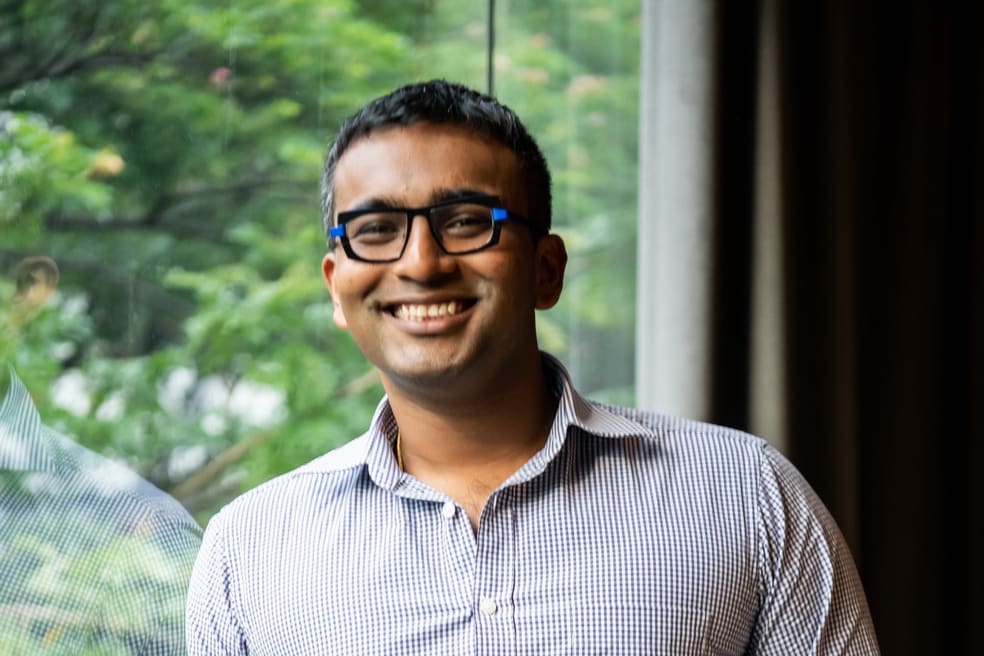
TODAY: As the current working generation, what are your thoughts on Singapore keeping itself open to talents from overseas?
Jayasutha: I completely welcome opening up to foreign talent because I think there's so much to learn and for us to gain from them coming. That is how Singapore has built itself up and progressed. There's a huge value in that and we can't discount that.
But opening up our borders to a lot more foreign talent means living with a couple more things. Rental prices are going to increase, property prices are going to soar… How would it affect the number of permanent residency or citizenships that will be given? I would be interested to find out more and I’m sure these will be covered in subsequent (parliamentary) sessions.
The complaints will continue about the free trade agreement with India and the presence of people from the People's Republic of China and so on. We need to talk about these things objectively (but) we need to take away the racism and speak objectively, and then we come to a conclusion.
Yuvan: I think it boils down to what we define as being Singaporean. If we view it through a very limited lens, meaning you have an identity card or red passport, then I think we are casting our nets very narrowly.
But if you view a Singaporean as someone within Singapore, even outside of Singapore, who cares for Singapore and may not be Singaporean, then I think we need to welcome such people. I think the challenge is how do you assess that?
Nabillah: I work quite a bit with foreigners as well. Most of my students are international school children. And when I speak to the parents, they always lament about how expensive the school fees are… I think all these negative feelings about foreigners, they might stem from the fact that we don't know how difficult it is for foreigners to live in Singapore as well. They don't have things like (Central Provident Fund savings), they don't get to go to public schools, unless they are super-duper lucky. There are many, many layers involved.
Singaporeans who have very negative feelings, they might think, "Hey, you are just stealing space from us". But on the Government's part, I'm sure it has taken many different steps to assess all these different foreign talents and make sure that their presence in Singapore will definitely benefit the people here.
Esther: This brings me back to TODAY's articles about home earlier this month, how people define home. Just now, PM Lee in his speech mentioned “race, language, religion and place of birth”. And I love that, because... for many people who were not born here, they may see Singapore as home.
It's for us who are here to give them a chance to feel at home.
We always blame people, saying, "Oh, you cannot get used to the way we live our lives, you do not meet… all our criteria", but I think that it's a very immature way of approaching the issue and it is time for Singaporeans to really be mature about this.










